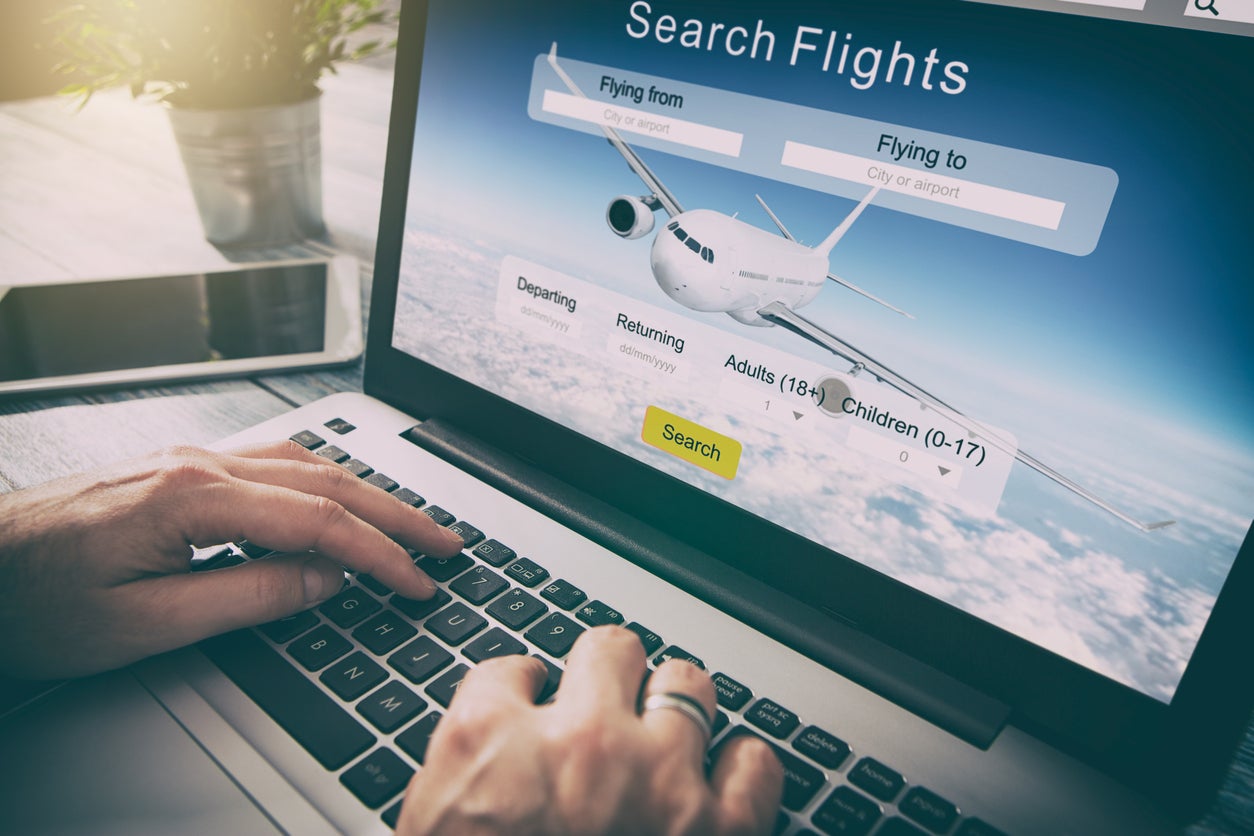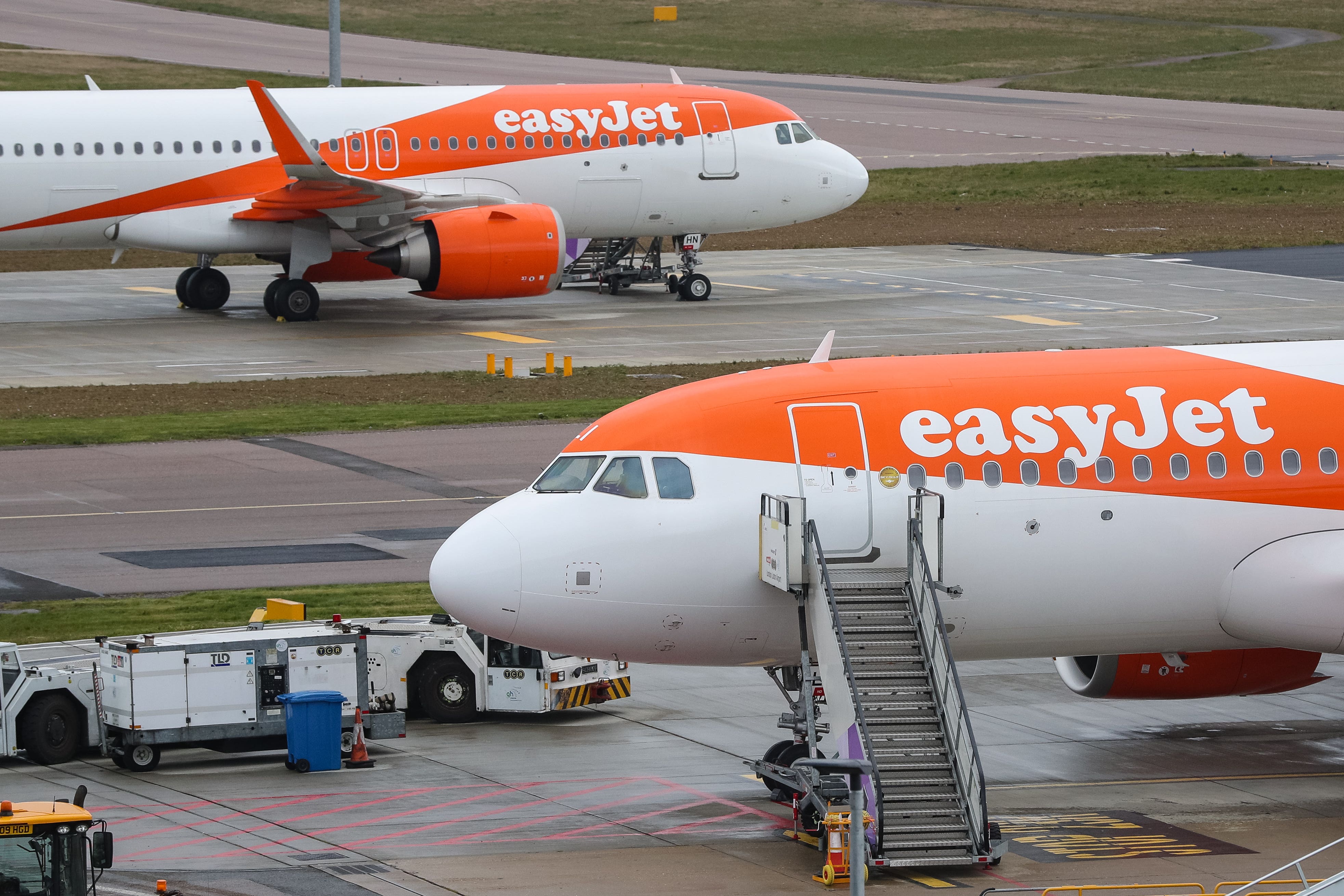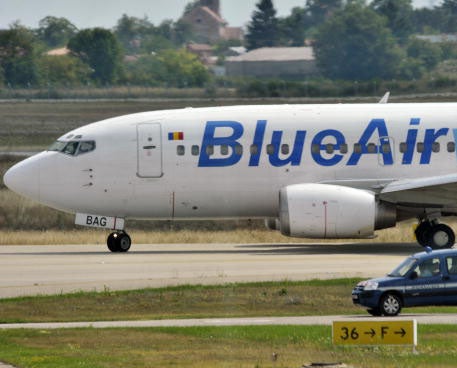Is my pre-Christmas US flight deal too good to be true?
Simon Calder answers your questions on booking bargains, Covid refunds and Florida holidays


Q I’m trying to organise flights to the US before Christmas. I am using the technique you recommended of buying a flight from Dublin rather than the UK to reduce tax. But oddly I can find flights with Aer Lingus on Skyscanner that are much cheaper through a company called BudgetAir than booking direct with the airline. Have you heard of them? Will it be too good to be true?
K
A I frequently and cheerfully use Dublin as a starting point for transatlantic flights because of the benefit of saving £75 in Air Passenger Duty; I buy a cheap ticket on Ryanair to the Irish capital and then a separate one across the ocean. Bear in mind that this involves a risk, and the best way to reduce the possibility that you might miss the connection is to go out the night before; by doing so, the saving will evaporate, but you get a night out in Dublin on the chancellor.
All other things being equal, I will always book direct; but having said that, it is often the case that transatlantic and other long-haul airfares are much cheaper through agents than direct with the airline – particularly in my experience, with Aer Lingus. But while I have had problems with BudgetAir, I have successfully used trip.com and indeed have booked my next US trip with them. On a journey from Dublin to Chicago, I saved about £300 compared with the “official” Aer Lingus fare.
Bear in mind that any changes will be cumbersome and expensive when you go through an intermediary.

Q I imagine I am not the only person who has mistakenly clicked to book a flight and then immediately regretted it because I spotted a mistake. Should passengers legally be allowed to change their minds and, if so, how long do you think we should be given?
David G
A “All sales are final”: that should be the warning given by a number of vendors of travel products. The usual assumption is that once you click “pay now”, you are committed and any change or cancellation will be very expensive – often 100 per cent of the price paid. In the olden days when many of us booked even straightforward products such as European flight tickets through travel agents, you would usually have your intended purchase recited back to you before handing over your cash. The internet removes that element, and – I have noticed – sometimes defaults to a date that was not the one you wanted. So after a number of mistaken purchases I have learnt to read everything back, and ideally cross-check with someone else looking at my screen.
Yet with hundreds of thousands of transactions taking place each day, mistakes are inevitable. And some airlines are particularly generous towards customers who buy direct from their websites. British Airways allows a full refund within 24 hours; you must phone customer services to cancel and receive your money back. Ryanair won’t provide a refund but allows a grace period of 24 hours from the time of your original booking to correct dates or times free of charge, as well as reversing the route (it happens).
Jet2 is non-committal, saying: “We do understand that sometimes mistakes can be made during the booking process. At our discretion, we may consider a refund if you tell us about the error by contacting our call centre within 24 hours of booking.” From what I know of the airline, I don’t imagine many requests are turned down. Which leaves easyJet. Britain’s biggest budget airline will allow you to cancel within 24 hours – but will charge £49 for the privilege. On many cheaper tickets, that is simply not worth doing.
An automatic right to cancel for a full refund within 24 hours, or even a week or two, sounds attractive for consumers. But it would add to airlines’ costs and potentially fares, and anyway, some carriers see it as a competitive advantage to offer flexibility. I would rather campaign for travellers to be more careful when booking.

Q Our family of three were booked from London Stansted to Bucharest on Blue Air in July 2020 for a two-week holiday touring around Romania. Obviously, there were no holidays that year and so we requested and expected a refund of our £770. We must have contacted the airline seven or eight times via emails, contact numbers and through the website. It got continually more difficult to track anyone down.
The last communication was that it was awaiting financial support from the Romanian government before it was able to provide alternative flights or any refunds. Presumably, this government support never arrived as Blue Air suspended its network at the end of September 2022. Do I assume our cash is lost for all time? I had thought there was some sort of protection against this. But even if there were, perhaps I am out of time to claim anyway.
Jessica W
A For a time, Blue Air seemed to be a plausible operation: taking advantage of the low cost of running an airline from Romania, the carrier flew to both London and Liverpool. But it suffered from a muddled fleet and serious competition from both Wizz Air and Ryanair. Once Covid arrived, any prospects for survival evaporated.
Understandably, while Blue Air was still theoretically a going concern, you would naturally seek the refund that was due for you under European air passengers’ rights rules. Unfortunately, while the management was trying to stave off bankruptcy, the very last thing they wanted to do was hand back cash.
The next step: go to the card company with which you paid and seek a refund under Section 75 of the Consumer Credit Act (I am hoping here that you paid direct with a UK credit card and did not go through any intermediary). UK Finance helpfully says: “You should make a claim within six years of buying the goods or services or, in cases of non-receipt, when you were due to receive them.”
I calculate that you still have about 21 months left to make a claim. Let me know how you get on.

Q We have flights booked to Orlando in January, with the intention of spending time on the Gulf Coast beaches and also Cocoa Beach. Having seen the awfully sad devastation caused by the recent hurricanes we do not want to be a burden on the local community as they rebuild their homes and lives. Equally, we are aware that businesses need customers to survive. Hence we are torn between staying away, or continuing with our travel plans to invest in the local community. What do you think?
David B
A You have chosen wisely, in terms of both locations and timing. Florida’s Gulf Coast beaches, as well as Cocoa Beach on the Atlantic shore, are a delight – especially in January, when the weather should be reasonably calm, warm and sunny. That is in marked contrast to the June-to-October storm season, during which the power of ferocious storms has been tragically evident this week.-
The deadly Hurricane Milton has moved east of Florida and out into the Atlantic, leaving behind a trail of destruction. The Foreign Office says a high risk remains from further flooding in the coming days and that areas of the state remain without power and mains water.
It is natural to be concerned about the effects of the disaster on the local people, but I think the most effective answer to your question is provided by the tourism businesses themselves. The big theme parks of Orlando – Walt Disney World and Universal – opened on schedule yesterday morning, immediately after the deluge. Busch Gardens near Tampa has delayed reopening slightly longer, but will certainly be back in business within days.
You will be in less touristy areas, and of course you should contact the property owners to ask whether it is safe and appropriate to visit. Unless there is some profound damage that will take months to repair, I am confident the answer will be, “yes, we’re open”. Florida is largely dependent on tourism, and accustomed to severe weather. As with many places visited by natural disasters that have recovered, going on holiday is a valuable response.
Email your question to s@hols.tv or tweet @simoncalder
Join our commenting forum
Join thought-provoking conversations, follow other Independent readers and see their replies
Comments
Bookmark popover
Removed from bookmarks